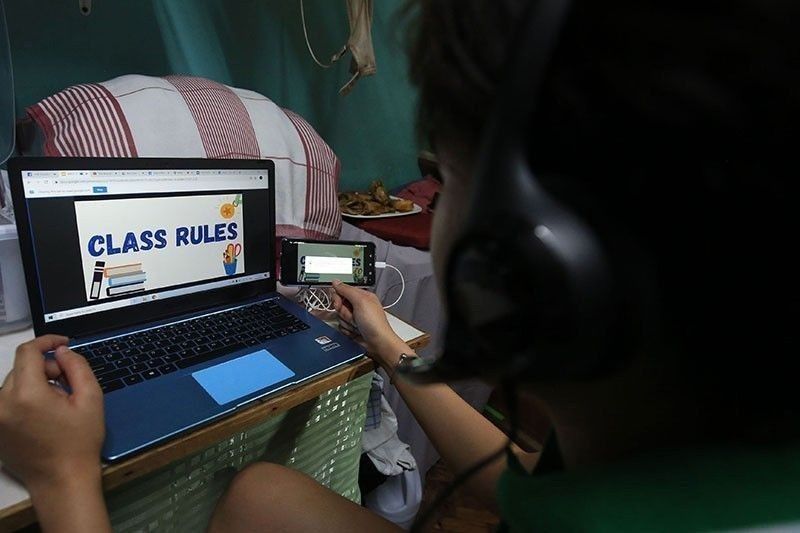CHR report: Parents' inability to help children with disabilities also a barrier to learning

MANILA, Philippines — Parents of children with disabilities who were unaware of how or were otherwise unable to assist their children with their learning devices and materials contributed to their disrupted schooling during the pandemic, a new report by the Commission on Human Rights said.
Based on discussions with students with disabilities and their parents, the few materials made available to them were also either inaccessible or difficult to use due to a lack of "know-how" from both child and parent.
"Parents' and other stakeholders' support is critical for students and workers with disabilities. The lack of support of some parents for their children with disabilities can be due to a lack of awareness of the kind of support their children need," the report said.
Parents of children with disabilities can "sometimes themselves become barriers to the rights of their child," the CHR report stated.
This is why support and assistance from other institutions are also important, the report added.
The study by the CHR took into account the general extent to which students were able to transition to work during the COVID-19 pandemic under the K to 12 curriculum and the difficulties that plagued the education sector.
Limited appropriate modules
Students with disabilities had limited access to learning materials, technology, and other devices during the pandemic, with most materials in modules containing images or pictures that could not be seen by students with visual impairment, according to the report.
"Added to this, some lacked the know-how to use technology, and others could not be assisted by their parents or by the teachers who failed to respond to the students’ messages, leaving their needs and concerns unattended," the report stated.
Other students had devices that were incompatible with educational applications or computer software and learning platforms, such as Google Classrooms and Henyo. Some had no devices at all.
Lack of access to PWD-friendly resources was compounded by other challenges that hounded the education sector across the board, such as weak internet connection and costly load credits for mobile data.
Not all students prefer face-to-face classes
The CHR report also highlighted how popular calls to return to in-person classes did not suit the needs of students with different disabilities.
"Preference for remote learning and face-to-face learning varies depending on a student’s impairment," the report said.
While some students felt more at ease with in-person interactions, students on the autism spectrum favor online classes because their opportunities to socialize are minimized, and they are less likely to be bullied, the report showed.
Disruptions of any kind to the day-to-day routine of children on the autism spectrum can cause sensory discomfort. A 2021 study showed that after getting over the pivot to online classes, students with autism thrived under the remote and flexible learning setup at home, which offered a rare sense of social safety.
School-to-work transition different for PWDs
While generally, students in mainstream schools aim for the same school-to-work trajectory, students with disabilities will need to take different paths.
The transition from school for children and youth with disabilities is "unique", the report stated, "because it can mean many things: transition from work to sheltered employment, from school to supportive employment, or from school to open employment."
Their prospects after school, however, remain largely outside the knowledge of public school teachers, many of whom have "have no clear understanding of what transition means for children and youth with developmental impairment," the report showed.
"There is no proper curriculum for their transition from school to employment," the report showed.
The CHR report also revealed that there is a lack of comprehensive data on the employment of persons with disabilities.
Despite the requirement under RA 10524 or the Magna Carta for Persons With Disabilities for government agencies and medium or large companies to allot at least 1% of positions for PWDs, they will still "try to look for people with the least impact of disabling conditions" just to meet the criteria, the report stated.
Companies that comply with the provision, however, are not necessarily inclusive, since persons with disabilities are typically employed "based on the severity of their disability and not based on their competencies", the report showed.
Most persons with disabilities also still find trouble getting work in the private sector, with employers’ prejudices shooting down even those with acceptable skills.
Based on observations by non-government organizations, "when persons with intellectual impairment are employed, it is usually out of pity and not because of their qualification or competence,” the report added.
- Latest
- Trending

































